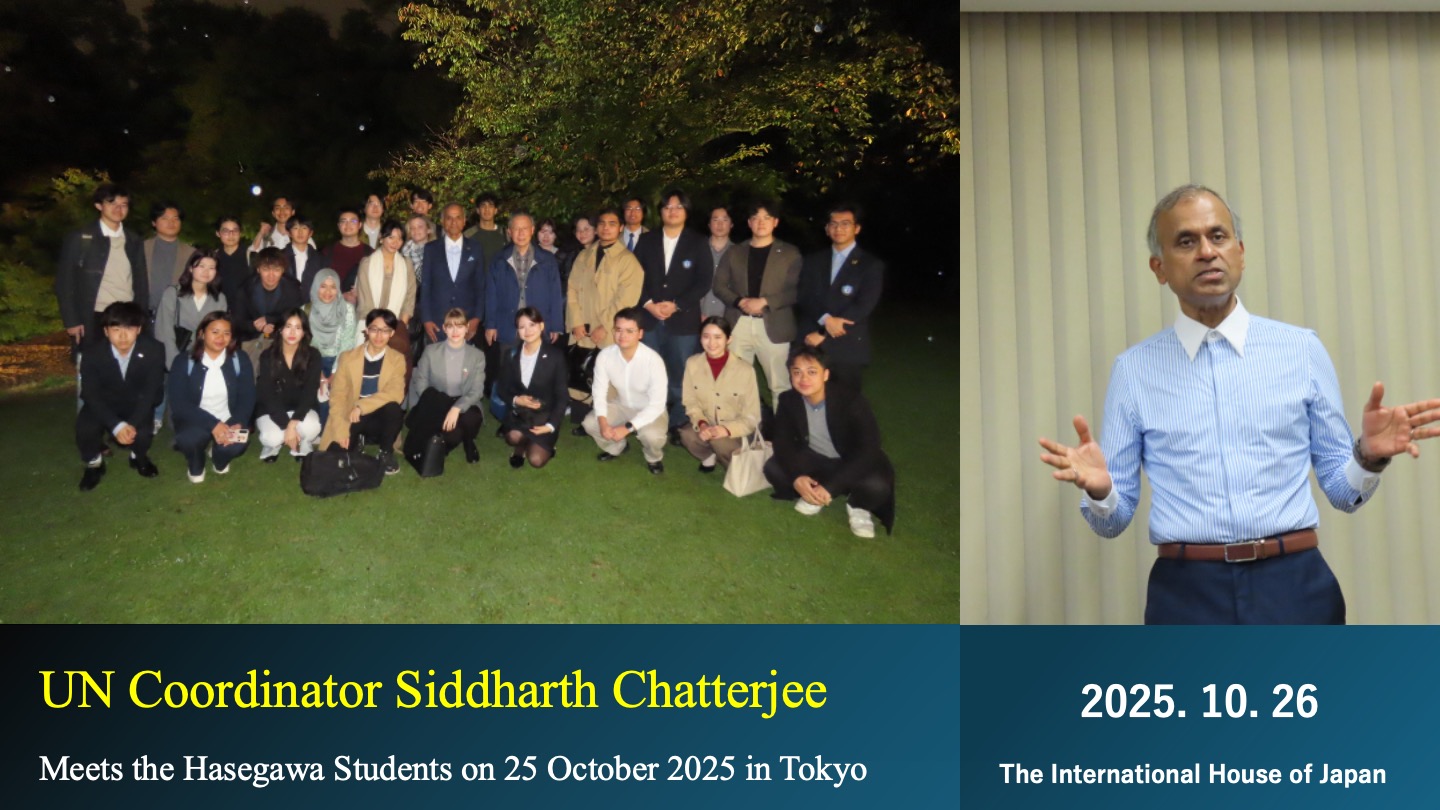 On October 25, a study group hosted by Mr. Sukehiro Hasegawa, former Special Representative of the Secretary-General of the United Nations, featured a lecture by guest speaker Mr. Siddharth Chatterjee, the UN Resident Coordinator in China. Mr. Chatterjee offered a multi-faceted perspective on global challenges and the way forward for international cooperation.
On October 25, a study group hosted by Mr. Sukehiro Hasegawa, former Special Representative of the Secretary-General of the United Nations, featured a lecture by guest speaker Mr. Siddharth Chatterjee, the UN Resident Coordinator in China. Mr. Chatterjee offered a multi-faceted perspective on global challenges and the way forward for international cooperation.
Mr. Chatterjee began by pointing out that the challenges facing the modern world—such as inequality, climate change, and conflict—are not isolated issues but are deeply interconnected. He analyzed that the COVID-19 pandemic, in particular, exposed the severe socioeconomic inequalities inherent in the world.
He then stressed that to overcome these complex crises, a fundamental and collective shift from competition between nations to cooperation-based multilateralism is essential. He also mentioned the need for UN reform to better reflect the current multipolar global situation.
Furthermore, as a concrete measure to address inequality, Mr. Chatterjee emphasized that investing in “human capital” through education is the most crucial key to a nation’s sustainable development. Noting that historical conflicts over resources and power have been the embers of conflict, he emphasized that meaningful dialogue and diplomacy are crucial for fostering peaceful international relations.
Touching specifically on the situation in East Asia, he pointed out that Japan, China, and South Korea share many common challenges. He strongly appealed for the three countries not to be in conflict, but rather to unite in confronting common crises. By deepening dialogue and cooperation, he urged, they should foster a shared understanding that “Asia is one.”
(Reported by Daigo Matsushima)
